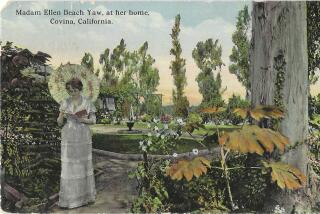Sammy Kaye, ‘Swing and Sway’ Bandleader, Dies
- Share via
Orchestra leader Sammy Kaye, whose “swing and sway” music appealed to millions of ballroom dancers during the Big Band days of the late 1930s and ‘40s, has died of cancer in Ridgewood, N.J., it was reported Wednesday. He was 77.
A Valley Hospital spokesman said Kaye was admitted several days ago for the second time in recent weeks. He died Tuesday night.
The critics were never kind to Kaye, but that did not matter to those who loved to dance to such tunes as “Daddy,” “Harbor Lights” and “It Isn’t Fair,” his three biggest hits. His gimmicks included song titles that were sung rather than simply announced, in the manner of another sweet-music favorite, Kay Kyser.
“And now,” Kaye would croon into the microphone, “These lovely lyrics, sung by Don Cornell. . . .” Or by the Three Kaydettes, or by any of several other singers with the band.
As well as being a demanding leader who drove his musicians hard in practice, Kaye was a shrewd businessman who became wealthy with investments in oil, real estate, music publishing, bowling alleys and other enterprises.
Perhaps his most successful trick was the “So You Want to Lead a Band” routine, which he featured in dance or stage appearances, on radio and finally on television. Members of the audience were invited to direct the band--competing for prized Sammy Kaye batons.
The musicians would speed up or slow down as the amateur waved at them, often with hilarious results.
“Taking potshots at Sammy Kaye was considered both fun and the right thing for any self-respecting jazz musician or critic to do,” critic George T. Simon recalled in his book, “The Big Bands.” “For his was one of the foremost examples of what we sneeringly referred to as Mickey Mouse music.”
Simon noted that the slogan “Swing and sway with Sammy Kaye” was “catchy, though inaccurate.” The critic was so put off by the band, in fact, that in reviewing Kaye’s New York debut at the Commodore Hotel in 1938, he wrote, “The ‘swing’ of Sammy Kaye can truthfully be described as follows.”
There followed several inches of blank space.
Kaye’s sure-fire formula involved romantic songs played with what Simon called “simpering saxes and slurping trombones set off by dainty, muted trumpets.”
But even Simon had to admit that Kaye was a success because he “always kept his ear attuned to the times and to the dancers. He was adept at setting ideal tempos for dancing . . . at fronting his band with grace and charm, and at supplying satisfying sounds for those unable to appreciate and/or comprehend what the more musical bands were playing.”
Kaye’s demanding--some said dictatorial--attitude toward his musicians once prompted almost the entire band to walk out on him. Kaye quickly replaced them and went on successfully while they hunted other jobs.
He was a regarded as a so-so clarinet player who was perceptive enough not to feature his own playing. He composed the band’s theme song, “Until Tomorrow,” as well as “Hawaiian Sunset,” “Tell Me You Love Me” and other numbers.
He remained a popular radio bandleader. “Sunday Serenade” was broadcast for a dozen years.
Kaye was born March 13, 1910, in Lakewood, Ohio. His parents were poor Czech immigrants. His father’s name was Samuel Zarnocay.
In high school, Kaye was a star in track and baseball, winning an athletic scholarship to Ohio University, where he earned a degree in civil engineering and helped pay his expenses by forming a band.
After graduation, he stayed with the band rather than civil engineering. During his first big engagement at the Hotel Statler in Cleveland, the hotel manager persuaded him to take elocution lessons to get rid of his Czechoslovakian accent. Later, as he watched Lawrence Welk become a big hit on television, Kaye said he wondered whether he had made a mistake taking the lessons.
By the 1960s, with most of the big bands gone, Kaye still led a band occasionally and recorded. But by then he was playing a great deal of golf and was overseeing his music publishing businesses and other ventures.
He was believed to be one of the half a dozen richest of the big band leaders.
Kaye married Ruth Knox Elden in 1940. They were divorced in 1956. They had no children.
More to Read
The biggest entertainment stories
Get our big stories about Hollywood, film, television, music, arts, culture and more right in your inbox as soon as they publish.
You may occasionally receive promotional content from the Los Angeles Times.








